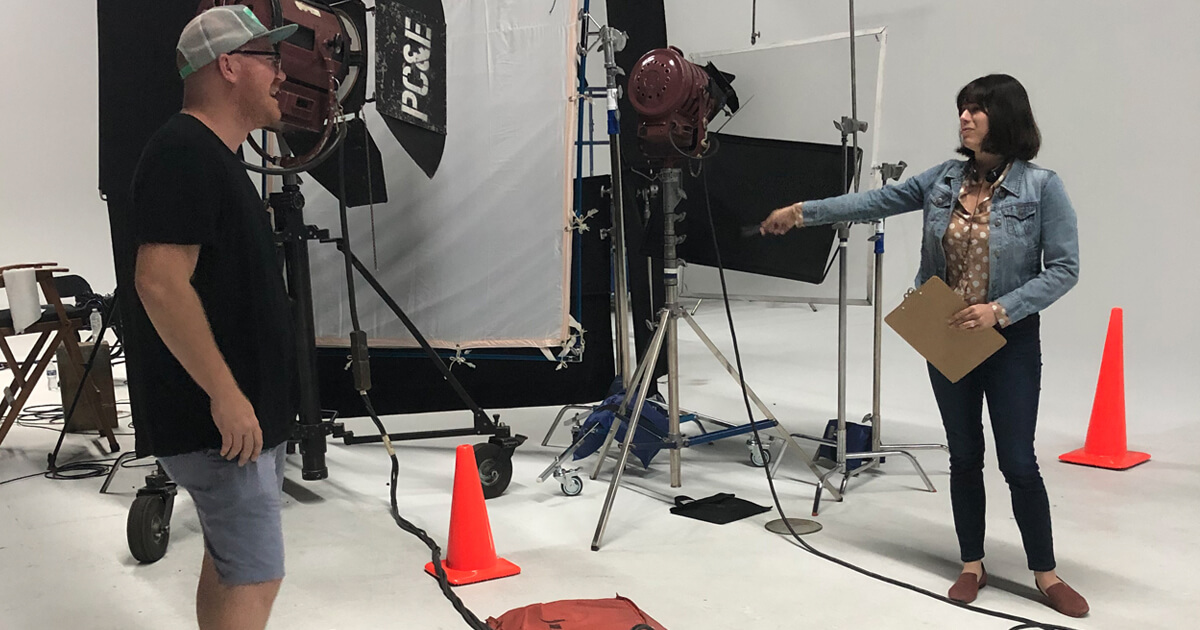Understanding Event Production: Why It Is Essential for Successful Gatherings
Event production plays a crucial function fit successful events. It entails cautious planning, sychronisation, and implementation to guarantee every information straightens with the event's vision. This procedure not only boosts attendee experiences however additionally facilitates significant connections amongst participants. Recognizing the details of event production can considerably influence the overall result. What are the crucial elements that add to an effective event, and exactly how can they be effectively handled?
The Function of Event Production in Developing Unforgettable Experiences
Lots of variables contribute to the success of an event, event production plays an essential role in crafting remarkable experiences. This multifaceted process includes different elements, consisting of planning, logistics, and execution. Efficient event production warranties that every detail aligns with the overall vision, creating a seamless circulation that mesmerizes guests. By working with timelines, taking care of sources, and looking after technological facets, event manufacturers develop a foundation for impactful experiences.Moreover, they curate atmospheres that resonate with the target audience, enhancing engagement and psychological link. From choosing appropriate venues to integrating innovative technology, the choices made throughout production substantially influence how guests perceive and keep in mind the event. By prioritizing quality and focus to information, event production transforms ordinary celebrations right into amazing moments, leaving long-term impacts. Eventually, the skilled orchestration of these elements defines the significance of an event, showcasing the importance of specialist event production in accomplishing phenomenal results.
Key Elements of Successful Event Production
Reliable event production rests on numerous key parts that ensure success. Planning and sychronisation establish a strong structure, while technical configuration requirements attend to logistical needs. Furthermore, implementing audience interaction techniques enhances the total experience, making the event memorable.
Planning and Control
Planning and control offer as the backbone of successful event production, making certain that every detail aligns flawlessly to create an unforgettable experience. Reliable preparation involves establishing a clear vision and purposes, while coordination entails the careful company of logistics, timetables, and resources. A well-defined timeline is crucial, guiding all stakeholders through vital landmarks and tasks. Communication plays an essential duty, cultivating cooperation among staff member, suppliers, and place team. Normal conferences and updates assist to address challenges quickly, guaranteeing that everybody stays lined up with the event goals. Ultimately, a structured method to planning and coordination not only improves performance yet likewise considerably adds to the general success and enjoyment of the event for participants and organizers alike.
Technical Configuration Demands
A successful event depends heavily on its technical arrangement needs, which incorporate necessary elements such as audio-visual devices, lighting, hosting, and connectivity. Audio-visual devices consists of microphones, speakers, and projectors, guaranteeing that discussions and efficiencies are supplied clearly. Appropriate lighting boosts the atmosphere and highlights essential areas, while staging provides the essential system for speakers and entertainers. Connection, including Wi-Fi and electrical accessibility, is crucial for seamless interaction and innovation integration. Each part needs to be thoroughly planned and implemented, tailored to the event's specific needs. Inadequate technological setups can bring about interruptions, adversely impacting the total experience for attendees, emphasizing the significance of comprehensive prep work and focus to information in event production.
Target Market Interaction Approaches

The Relevance of Preparation and Sychronisation
Planning and sychronisation are critical to the success of any type of event production. Effective timeline management, source allotment approaches, and team communication characteristics play important roles in guaranteeing that all components integrated effortlessly. Without an organized method to these elements, events risk dealing with hold-ups, spending plan overruns, and miscommunication among staff member.
Reliable Timeline Management


While successful event production often hinges on creative thinking and execution, reliable timeline administration remains a necessary element that can not be overlooked. A well-structured timeline acts as the backbone of any type of event, ensuring that each stage is executed in a prompt manner. It enables the coordination of different jobs, from venue arrangement to guest arrivals, while stopping potential traffic jams. By plainly describing target dates and responsibilities, event coordinators can preserve emphasis and adapt to unanticipated obstacles. Additionally, a thoroughly crafted timeline fosters communication among group members, promoting accountability and cooperation. Eventually, efficient timeline monitoring not only improves functional efficiency but likewise adds substantially to the overall success and smooth execution of the event, leaving attendees with an unforgettable experience.
Source Allotment Strategies
Effective resource allowance approaches are essential for the effective execution of any type of event. Correct preparation permits event coordinators to recognize and disperse resources, such as financial resources, workers, and products, in a way that makes the most of performance. By examining the details demands of each facet of the event, coordinators can focus on tasks and designate sources as necessary. Control amongst different departments guarantees that all components, from satisfying audiovisual requirements, are appropriately sustained. This calculated technique not only lessens waste but also boosts the total experience for guests. Furthermore, preparing for possible obstacles and having backup plans in place permits smoother procedures. Eventually, efficient resource allocation adds significantly to achieving event purposes and assuring an unforgettable gathering.
Group Interaction Dynamics
Just how can seamless interaction among staff member transform the event production procedure? Efficient interaction is vital for working with jobs, sharing updates, and addressing obstacles in real-time. When staff member participate in open dialogue, they can rapidly identify prospective issues and create services collaboratively, lessening delays and misconceptions. This dynamic fosters a natural environment where every person understands their duties and obligations, leading to a much more integrated effort. In addition, regular check-ins and responses loops improve accountability and assurance placement with the event's goals. By focusing on communication methods, browse around this web-site teams can improve operations, bolster spirits, and ultimately elevate the overall high quality of the event. Effective gatherings depend upon the capacity to connect properly, making it a crucial component of event production.
Enhancing Guest Involvement Through Innovative Design
Imaginative style plays an important duty in enhancing participant interaction at events, as it promotes an immersive setting that mesmerizes individuals' focus. By incorporating innovative visuals, interactive elements, and thematic design, event coordinators can produce remarkable experiences that reverberate with participants. Thoughtful layout designs promote movement and exploration, motivating visitors to interact with screens and each other.Incorporating technology, such as enhanced fact or live ballot, additional improves the experience, permitting real-time comments and communication. read review In addition, sensory components like lighting, noise, and fragrance can stimulate emotions and create a more appealing atmosphere.The usage of narration with design helps share the event's objective and message, making it more relatable for attendees. Ultimately, creative layout not just improves involvement yet additionally grows links among participants, leaving a lasting impression that extends beyond the event itself. This strategic strategy to layout is necessary for successful gatherings.
Taking care of Logistics for a Smooth Implementation
While the enjoyment of an event can attract guests in, handling logistics is vital to secure a smooth implementation. This involves carefully coordinating numerous aspects, from location option and design to event catering and transport. Efficient logistics management assures that all parts line up, enabling a smooth circulation from registration to the verdict of the event.Additionally, a clear communication strategy among all stakeholders is crucial. This includes team, vendors, and volunteers, that must be educated of their functions and obligations. Preparing for prospective obstacles, such as devices failing or unexpected climate condition, can additionally enhance the event's success.Creating an in-depth timeline helps keep the group on the right track and permits timely changes. Ultimately, well-managed logistics not only promote a pleasurable experience for attendees however additionally reflect the expertise and reliability of the organizers, adding to the overall success of the event.

The Impact of Modern Technology on Event Production
What role does modern technology play in shaping modern-day event production? Innovation has come to be a foundation of effective event production, improving both planning and implementation procedures. From sophisticated registration systems to interactive apps, modern technology streamlines participant administration and boosts interaction. Digital event platforms permit organizers to get to broader audiences, breaking geographical obstacles and assisting in hybrid gatherings that combine in-person and online experiences.Additionally, audiovisual innovations, such as high-def screens and stereos, elevate the high quality of presentations and efficiencies, making sure a memorable experience for guests - event production charlotte. Social media site combination makes it possible for real-time comments and communication, promoting area engagement previously, during, and after the event. Additionally, information analytics tools help coordinators in monitoring participant habits and choices, making it possible for customized experiences that resonate with diverse target markets. On the whole, the combination of technology in event production not just boosts operational efficiency but additionally enhances attendee experiences, inevitably adding to the success of the event
Evaluating Success: Determining the End Results of Your Event
Success in event production depends upon effective assessment, which includes determining a range of end results to assess the overall impact of an event. To achieve this, coordinators can utilize both qualitative and measurable metrics. Quantitative steps may include attendance figures, ticket sales, and income produced, while qualitative assessments might involve participant complete satisfaction surveys and feedback forms.Additionally, assessing social media engagement and media coverage can give understandings right into the event's reach and brand effect. Comparing these metrics against predefined objectives assists figure out if the goals were met.Furthermore, post-event debriefs with the planning team can discover lessons found out and areas for improvement. By methodically examining these results, event manufacturers can improve future gatherings, making certain continual growth and success. Eventually, an extensive assessment not only highlights success however also educates calculated choices for subsequent events, cultivating a culture of quality in event production.
Often Asked Questions
What Qualifications Should an Event Manufacturer Have?
Event producers should have strong business abilities, creativity, and efficient interaction abilities. A history in project monitoring, budgeting, and negotiation is crucial. Appropriate certifications and experience in varied event types better improve their credentials.
How Can I Lower Event Production Costs Successfully?
To efficiently lower event production costs, one can enhance supplier choice, discuss contracts, use internal sources, prioritize necessary aspects, apply innovation find for performance, and explore sponsorship chances to balance out expenditures without jeopardizing high quality.
What Are the Common Challenges in Event Production?
Typical obstacles in event production consist of budget restraints, logistical coordination, vendor administration, time constraints, attendee engagement, technical problems, and unanticipated circumstances - event production charlotte. Each factor can significantly affect the overall success and smooth execution of the event
Exactly how Do I Select the Right Place for My Event?
Picking the right location involves considering elements such as location, capacity, facilities, and budget plan. In addition, evaluating accessibility and setting ensures the chosen area lines up with the event's objectives and improves the general guest experience.
What Is the Typical Timeline for Planning an Event?
The regular timeline for intending an occasion differs, however usually consists of stages such as principle growth, location choice, vendor coordination, promo, and last preparations, frequently spanning several months to assure an effective execution.